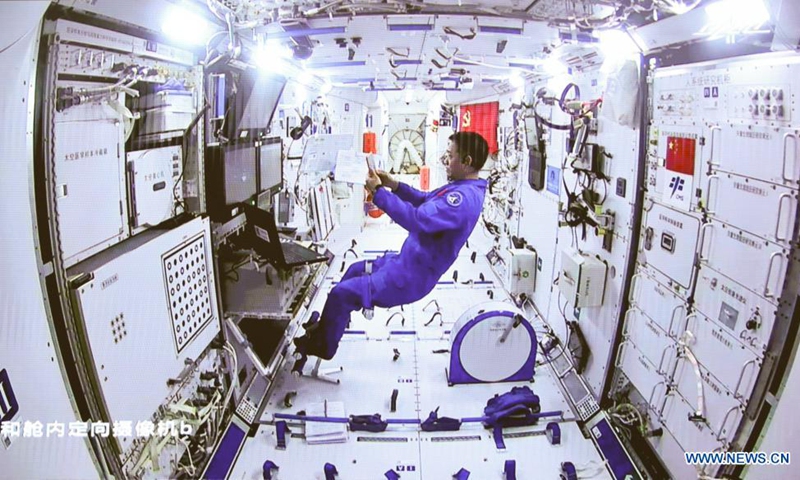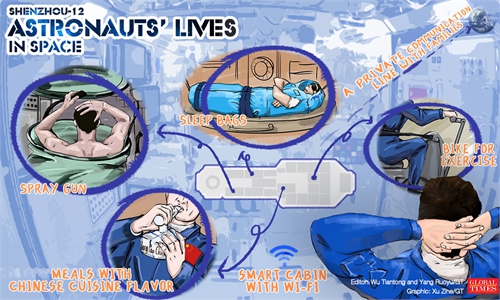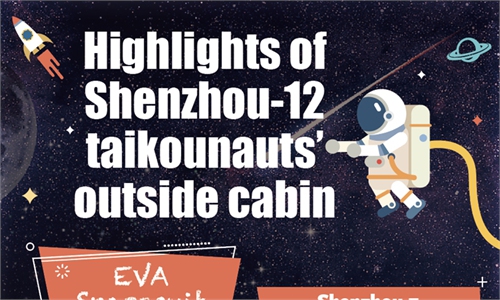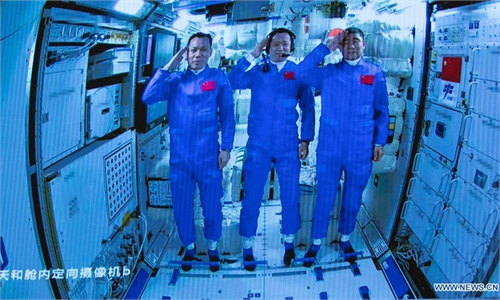
Screen image taken at Beijing Aerospace Control Center on July 4, 2021 shows Chinese astronaut Nie Haisheng staying inside Tianhe in cooperation with Liu Boming and Tang Hongbo for their extravehicular activities (EVAs). Chinese astronauts Liu Boming and Tang Hongbo had both slipped out of the space station core module Tianhe by 11:02 a.m. (Beijing Time) on Sunday, starting EVAs, according to the China Manned Space Agency (CMSA).(Photo: Xinhua)
As the Shenzhou-12 crew of three taikonauts has lived for nearly three weeks in China's Tianhe space station core module, the urine treatment system in the module has recycled 66 liters of urine and treated it into distilled water to support the crew, the Global Times learned from the system designers on Tuesday.
This urine treatment system - a sub-system of the life support system - was devised by Chinese scientists with the 206 Research Institute of the Second Academy of the China Aerospace Science and Industry Corp (CASIC). The developers told the Global Times that this is the nation's first engineering application of the system, and its good performance shows how China's space station construction work has advanced.
All indicators of the distilled water have reached the standards for usage, and the mission planners have unanimously recognized this outstanding performance, the institute said in a statement it sent to the Global Times.
Water recycling is a key technological breakthrough to ensure a long-term human stay in the space station at minimal cost, the developers explained.
The system can extract five liters of distilled water from six liters of urine in one cycle, and the maximum water production rate is 2.5 liters per hour, according to the CASIC. The quality of the distilled water surpasses the country's drinking water standards as well as the standard required for astronauts. The recycled water can be used for drinking, cleaning or oxygen generating purposes in the space station.
Maintaining a long-term human presence in space requires a well-organized life support system, and wastewater recycling and oxygen generation both play essential roles. The system is so efficient that it can save as much as 100 million yuan (about $15.5 million) over a period of six months with three astronauts in orbit, according to mission insiders.
According to the CASIC, the rate for the delivery of international cargo to the orbiting spacecraft is about 140,000 to 350,000 yuan per kilogram. This is why money-saving recycling systems are necessary.
On June 17, China launched the manned spacecraft Shenzhou-12, sending three taikonauts to Tianhe for a three-month mission. Among other activities, the crew executed an epic seven-hour spacewalk on Sunday, with another one expected to be carried out in the near future.




